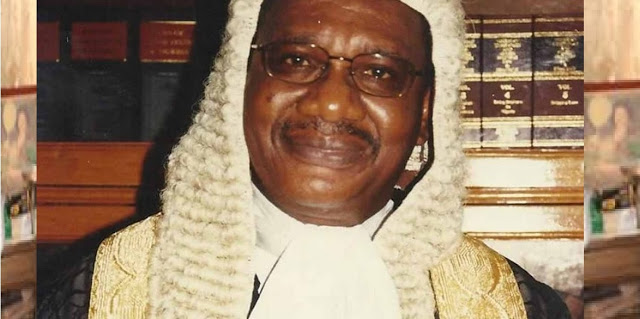By Alade Rotimi-John
Even as Nigeria as a whole is in the throes of progressive mutilation and disfigurement, even so may the period 1950s to the 1970s be ruefully admitted as her Golden Age and the activities of the period fittingly compared to Sisyphus and his stone. “Ulysses factor” as the urge that men have to want to attempt the impossible has also been aptly ascribed to the attenuated attempts to want to forge a nation out of a naturally-fragmented landscape. Some magic moments we cannot hope to recapture have also been experienced. The Obafemi Awolowo years in Western Nigeria, the oil boom era, the starry-eyed 2nd National Development Plan with its borrowed philosophy, internal contradictions and arrested pragmatism, the tongue-in-cheek Reconciliation, Rehabilitation and Reconstruction somnambulist sing-song at the end of the civil war, the profligacy of the Shagari administration period, the several brusque military hijack of or interference with governance, etc. are all mishmash echoes or overtones of a giddy beginning. However, at the background, science and an expanding universe including an increased sense of social responsibility were having their proper claims on the populace particularly where the young who sought the Golden Fleece. New standards of criticism and of evaluation were emerging and more people travelled and many of them more intelligently equipped. Thanks to an awakened interest in the future fostered largely by the new media – radio, television, motion pictures. Etc. our world was unobtrusively changing before our very eyes.
Among little-noticed participant observer of this age is Itse Esanjumi Sagay. Later to become professor and a purveyor of many subject matters in Law, Sagay has providentially lived through this briefly-outlined period of Nigeria’s existence. He had gone to school at a time when hundreds of children differing widely in ability, inclination and outlook, gazed the future with unrestrained glee. A stimulating association with those of equal talent was the hallmark of Sagay’s schoolboy period. Even though many of the children fought their way so well and side-by-side, there eventually emerged so much distinction in attitudes, in industry, and in output. Sagay by his ability or inclination chose the rigorous but thrilling career in academics. He rose steadily (some have said, rapidly) to become a professor of Law. His output had been prodigious and his contribution to legal literature and jurisprudence was widely acknowledged.
At the University of Ife where he cut his early teeth in his chosen career, Sagay– even as a lecturer – was very close to the institution’s student body as he openly identified with many of that body’s membership tantrums and schoolboy rascality manifestations. Even though politically a moderate, ideologically Sagay imbibed all the canons of the radical social democratic left of centre and manifested its diktat. It was at the University of Benin that Sagay’s full bloom as a radical theoretician and pragmatist became proverbial. As the avuncular kitchen cabinet advisor and legal foremost jurist of the Festus Iyayi-led University of Benin chapter of the Academic Staff Union of Universities (ASUU), Sagay and his team gave Vice Chancellor Grace Alele-Williams a run for her money. She was tackled stud for stud, head butt for head butt and, more relevantly abstract reasoning for conceptual understanding – all positioned for keeping that administration on its toes to achieve the optimum judicious performance of its charge. It is charitable today to identify Sagaya an un-named hero of the intellectual challenge and practical effort to sanitise the public system. Even as every attempt to change the status quo is often met with official opposition, sometimes combatively, Sagay lost his place to the struggle at Benin as he was sacked and literally thrown out of his official University accommodation vi et armis.
Unceremoniously kicked out and relieved of his appointment from the University system, Sagay soon found a new and refreshing vocation in vigorous legal advocacy before the courts of the land and at the bar of public opinion regarding any subject matter, leading its advocacy with vigour, sound judgment and public spiritedness.
President Muhammadu Buhari may have found Sagay in this mint-fresh condition to have invited him to be the Chairman of his Presidential Advisory Committee on Anti-Corruption. Many fear Sagay may have been drafted. Others opine that Buhari wanted to use him as the cat’s paw to pull out his chestnuts. For Sagay, it may have been an embarrassing thing to refuse the call of the party and probably unwise too if any future favours are to be hoped for. His stately presence and unsurpassed mastery of case law set Sagay off from the handful of advocates to whom he may often be compared. In truth, each has special qualities of his own. Few, however equals Sagay in the ability to simplify complex matters with a few pithy phrases devoid or drained of maudlin or tearful emotions. He is crystal clear, without fear or resentment or any quality of hostile opposition in his manner of speech. Sagay is easily one of the ablest advocates of this era. However, considering his appointment to this self-same office of Chairman, PCAC Sagay is a round peg in a square hole. Politicians may be endeared to intellectual postulations or enamoured of cerebral formulations or even thrilled by axiomatic theorizing but they are inclined more to running against the grain of rationality or common sense. They are desultory too as they move from one unfinished task to another fouling the whole atmosphere with ubiquitous putrefaction. To be continued tomorrow
Rotimi-John, a lawyer and commentator on public affairs

